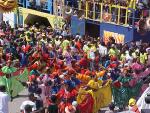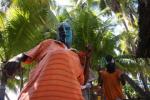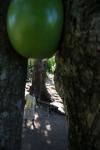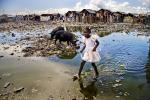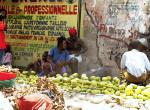Are Bio-Latrines Right for Haiti?
 On the outskirts of Les Cayes several years ago, I came across a school with a bio-latrine that used airless digestion to transform human waste into gas suitable for cooking, heating and lighting. After one month, there was enough gas being produced to cook a meal for all of the students in this fairly large school, without using environmentally destructive wood charcoal. The gas is without odor and, beyond the initial investment, without cost. The experiences of other low resource countries might hold lessons for the potential scale up of this innovation in Haiti.
On the outskirts of Les Cayes several years ago, I came across a school with a bio-latrine that used airless digestion to transform human waste into gas suitable for cooking, heating and lighting. After one month, there was enough gas being produced to cook a meal for all of the students in this fairly large school, without using environmentally destructive wood charcoal. The gas is without odor and, beyond the initial investment, without cost. The experiences of other low resource countries might hold lessons for the potential scale up of this innovation in Haiti.
